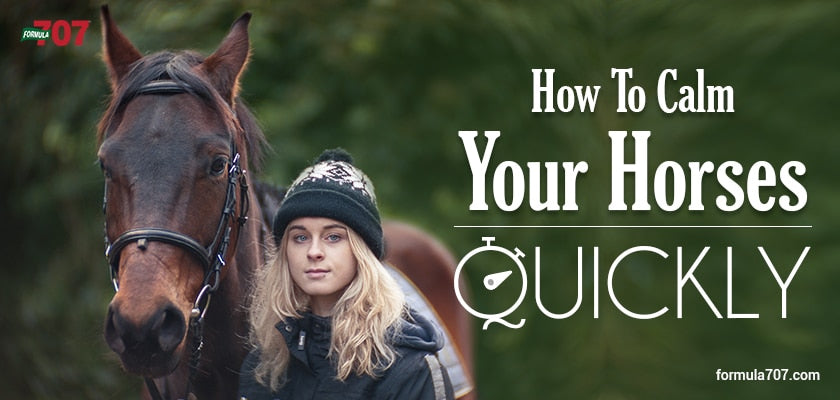Step #1. Identify The Cause
In the wild, a horse’s instinctive response to danger is to run. While that may be helpful in such an environment, it is certainly not something you’ll appreciate in a domestic setting. Just imagine the trouble you’ll have to go through when your horse suddenly starts to flee because of some perceived danger while you’re saddling up. So in order to calm your horses, you need to start by identifying the cause of their anxiety. Broadly, we can classify the causes of horse anxiety into the following categories:- Situational - Horses may exhibit situational anxiety when they associate a certain situation with a bad experience. Since horses don’t like enclosed spaces, your horse might get anxious when stepping into a trailer. It might be difficult to diagnose this type of anxiety when you have a new horse. So it would be wise to get a thorough history of the horse in order to anticipate issues.
- Change - Another common cause of anxiety in horses is change. An abrupt change in a horse’s living condition or environment can trigger this type of anxiety. Suddenly moving your horse from an open field into a confined space, or an instant switch to a hectic training schedule, are some examples of changes that can trigger equine anxiety.
- Sounds - Many horses are known to get nervous on hearing certain sounds. It could be a loud noise of something knocked over or a car honking or backfiring. Some horses react negatively to hissing sounds like the rustling of leaves or a hose leaking.
- Performance - You may notice that your horse tends to get jittery or tense before a big event. This is a sign of performance anxiety. In some cases, it’s because the horse has picked up on the rider’s nonverbal anxiety cues such as holding onto the reins too rightly or tensing up. Performance anxiety may also occur when the horse associates the sounds and smells of a competition with anxiety.
- Separation - Being herd animals, horses feel safer when they have companionship. So a horse may become anxious when it’s moved away from its herd mates. For example, your horse may try to bolt when you’re taking it into the stable from the pasture for grooming or saddling.

